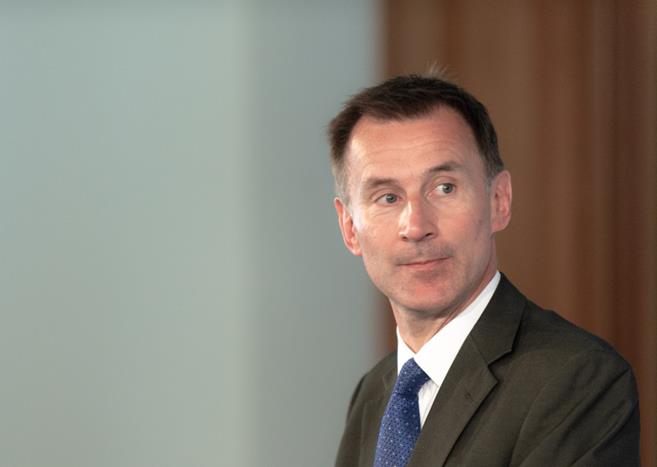Time to face facts
As you might have read, the CBI (Confederation of British Industry), the country’s biggest business lobby group, is embroiled in an existential crisis after numerous allegations of sexual misconduct and rape. Company after company has ended its membership of the body over the scandal. The chancellor, Jeremy Hunt (pictured), has even declared there is “no point” engaging with the organisation at the present time.
Rachael Saunders, deputy director of the Institute of Business Ethics, draws broader lessons from the CBI implosion, writing that companies should learn to read the warning signs, including gender metrics, staff retention figures, promotion and pay details.
“Many of the organisations where there has been significant media coverage have specific things in common—high-pressure workplaces, significant power disparities between senior and junior employees, work-related socialising. How many organisations could see themselves described in those criteria?”
And she adds: “Do not think that because you believe these crimes to be so abhorrent, they could not happen in your organisation. Take action.”
Naysayers on climate
Over in the US, enthusiasm for “say on climate” votes among shareholders appears to be fading. A report from Glass Lewis, the proxy adviser, finds that while there were many proposals in 2021 from investors for companies to offer a climate vote, none succeeded.
The bad news rippled into 2022. “That skepticism appears to have turned to indifference, as there were no shareholder proposals on this topic at U.S. companies in 2022. It is likely that the momentum around this issue has essentially ceased for the time being at North American companies.”
Meanwhile, Europe saw a doubling of the companies agreeing to a climate vote. And while they were all ratified, there is a warning. The vote results “show that shareholders are increasingly reviewing the proposals more closely — and voicing their concerns”.
Money talks?
OK, Board Agenda is now officially confused by the whole executive pay debate. For years now, the public discussion has been about why pay has risen so sharply and why chief execs earn staggering multiples of their average worker’s pay.
So, you could be forgiven for thinking the world had shifted in favour of some modicum of pay restraint.
And then came Julia Hoggett, chief executive of the London Stock Exchange, who in a blogpost, says: “We should be encouraging and supporting UK companies to compete for talent on a global basis, so we remain an attractive place for companies to base themselves, stay and grow,” she said.
Meanwhile, Heidrick & Struggles released a survey pointing out that the appointment of executives from other countries fell in 2022 as boards moved to be more cautious. It’s to be hoped that sooner or later the City will work out where it stands.
Unified message
And speaking of pay, it’s clear not everyone feels Hoggett has struck the right tone. Unilever shareholders have rejected their executive pay plan, just weeks ahead of the chief executive’s arrival in July.
Of the votes cast at the company’s AGM this week, 58% went against Unilever’s remuneration report. When you consider that 20% is considered a “revolt” in City terms, you begin to see the scale of disquiet over pay among shareholders of the consumer goods company.
Last week, Pearson, the education company, was also the subject of shareholder ire, clocking a 46% vote against its remuneration policy. Hoggett may think UK companies need to compete; investors seem to be asking everyone to rein it in.





